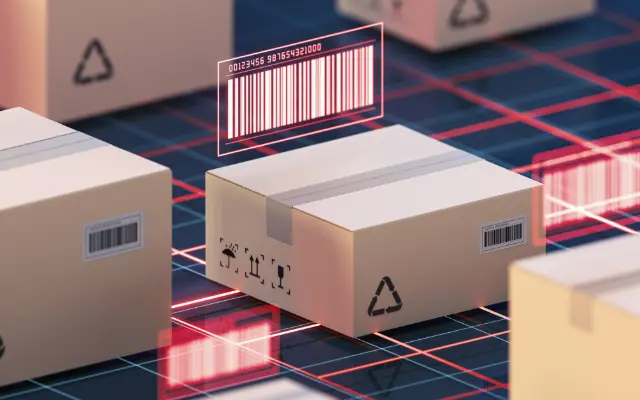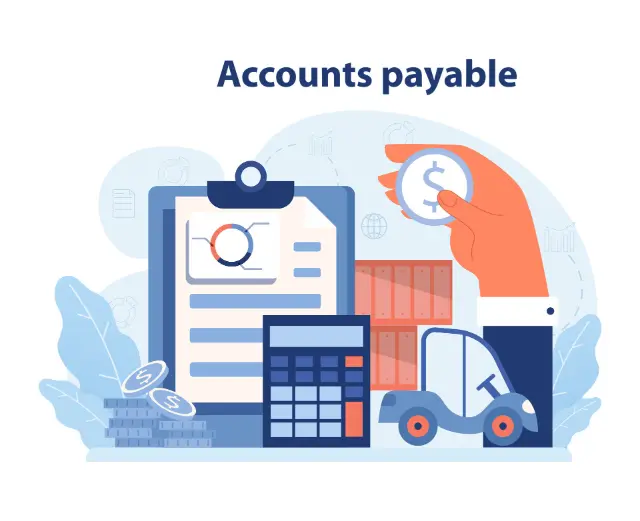Order Processing Automation: A Key to Efficiency and Accuracy in Manufacturing
The manufacturing industry relies heavily on efficient and accurate order processing to meet customer demands and maintain profitability. Manual order processing is prone to errors, delays, and inconsistencies, which can lead to lost orders, dissatisfied customers, and reduced productivity.
Order Processing Automation: The Solution
Order Processing Automation using Python, AI, and cloud-based solutions can revolutionize the manufacturing industry by streamlining order intake, validation, and processing. This technology automates repetitive tasks, eliminates errors, and speeds up order fulfillment, resulting in significant improvements in efficiency and accuracy.
By implementing Order Processing Automation, manufacturers can:
- Reduce manual errors and improve data accuracy
- Process orders faster, leading to reduced lead times
- Improve customer satisfaction by providing timely order confirmations and updates
- Gain real-time visibility into the order status
- Integrate with other systems, such as inventory management and CRM, for a seamless workflow
The Benefits of Python, AI, and Cloud for Order Processing Automation
Python is a versatile programming language that is well-suited for automating order processing tasks. Its simplicity and readability make it easy to develop and maintain automated scripts. AI algorithms can be integrated with Python to enhance automation capabilities, such as order validation and fraud detection. Cloud-based solutions provide the scalability and flexibility needed to handle large volumes of orders and integrate with multiple systems.
Conclusion
Order Processing Automation is a game-changer for the manufacturing industry. By leveraging Python, AI, and cloud-based solutions, manufacturers can streamline their order processing operations, reduce errors, and improve efficiency. This leads to increased customer satisfaction, reduced costs, and a competitive advantage in the global marketplace.

Python, AI, and Cloud: The Power Trio for Order Processing Automation
Python: The Automation Language
Python is a powerful programming language that is ideally suited for developing unattended bots for order processing automation. These bots can be programmed to perform a wide range of tasks, such as:
- Extracting data from purchase orders
- Validating orders against inventory availability
- Generating order confirmations and invoices
- Updating inventory systems
- Sending shipping notifications
Python’s simplicity and readability make it easy to develop and maintain these bots, even for non-programmers.
Attended Bots: A Human-in-the-Loop Approach
Attended bots are another type of bot that can be used for order processing automation. Attended bots work in conjunction with human workers, providing assistance with repetitive tasks and helping to improve accuracy and efficiency. For example, an attended bot could help a customer service representative by automatically filling out order forms or generating invoices.
Attended bots built with Python offer a high level of customization, allowing them to be tailored to the specific needs of each business.
Cloud Platforms: The Orchestration Powerhouse
Cloud platforms provide a powerful foundation for order processing automation. They offer a wide range of features and capabilities that are not available in traditional RPA/workflow tools orchestrators, including:
- Scalability: Cloud platforms can be scaled up or down to meet changing demand, ensuring that your automation system can handle any volume of orders.
- Flexibility: Cloud platforms offer a variety of deployment options, allowing you to choose the solution that best fits your needs.
- Integration: Cloud platforms can be easily integrated with other systems, such as ERP, CRM, and inventory management systems.
AI: The Accuracy Booster
AI can be used to enhance the accuracy and efficiency of order processing automation. For example, AI algorithms can be used to:
- Validate orders against complex business rules
- Detect and prevent fraud
- Handle edge cases that would be difficult or impossible to automate manually
Specific AI techniques that can be used for order processing automation include:
- Image recognition: AI algorithms can be trained to recognize and extract data from purchase orders and other documents.
- Natural language processing (NLP): AI algorithms can be trained to understand and interpret written text, such as customer emails and support requests.
- Generative AI: AI algorithms can be used to generate text, such as order confirmations and invoices, based on predefined templates.
By leveraging the power of Python, AI, and cloud platforms, manufacturers can create a robust and scalable order processing automation system that will improve efficiency, accuracy, and customer satisfaction.

Building the Order Processing Automation
The order processing automation process can be broken down into a number of sub-processes, each of which can be automated using Python and cloud technologies. These sub-processes include:
1. Order Intake
The first step in the order processing automation process is to capture orders from customers. This can be done through a variety of channels, such as email, web forms, and EDI. Python scripts can be used to extract data from these orders and store it in a central database.
2. Order Validation
Once orders have been captured, they need to be validated to ensure that they are complete and accurate. Python scripts can be used to perform a variety of validation checks, such as:
- Checking that all required fields have been filled in
- Verifying that the customer’s shipping and billing addresses are valid
- Ensuring that the ordered items are in stock
3. Order Fulfillment
Once orders have been validated, they need to be fulfilled. This involves picking the items from inventory, packing them, and shipping them to the customer. Python scripts can be used to automate the following tasks:
- Generating shipping labels
- Tracking shipments
- Notifying customers of the status of their orders
4. Order Confirmation
Once orders have been shipped, customers need to be notified. Python scripts can be used to generate and send order confirmation emails. These emails can include information such as the order number, the items ordered, the shipping address, and the estimated delivery date.
5. Invoice Generation
Once orders have been shipped, invoices need to be generated and sent to customers. Python scripts can be used to generate invoices based on the order data. These invoices can be sent to customers via email or post.
6. Inventory Management
When orders are fulfilled, inventory levels need to be updated. Python scripts can be used to automatically update inventory levels based on the items that have been shipped.
Data Security and Compliance
Data security and compliance are important considerations for any business, but they are especially important for manufacturers. Python and cloud technologies can help manufacturers to protect their data and ensure compliance with industry regulations. For example, Python scripts can be used to encrypt data at rest and in transit. Cloud platforms can provide a secure environment for storing and processing data.
Python vs. No-Code RPA/Workflow Tools
Python is a powerful and versatile programming language that offers a number of advantages over no-code RPA/workflow tools for order processing automation. These advantages include:
- Flexibility: Python is a general-purpose programming language that can be used to automate a wide range of tasks. No-code RPA/workflow tools are typically designed for specific tasks, which can limit their flexibility.
- Scalability: Python scripts can be scaled up to handle large volumes of orders. No-code RPA/workflow tools may not be able to handle the same volume of orders without significant performance degradation.
- Customization: Python scripts can be customized to meet the specific needs of each business. No-code RPA/workflow tools may not offer the same level of customization.
Algorythum’s Approach
Algorythum takes a different approach to order processing automation than most BPA companies. We believe that Python is the best language for automating complex business processes. We have developed a library of pre-built Python scripts that can be used to automate a wide range of order processing tasks. This library of scripts can be customized to meet the specific needs of each business.
We believe that our approach is superior to using off-the-shelf automation platforms because it offers greater flexibility, scalability, and customization. Our clients have experienced significant improvements in efficiency and accuracy after implementing our order processing automation solutions.

The Future of Order Processing Automation
The future of order processing automation is bright. As technology continues to evolve, new possibilities will emerge to enhance the efficiency and accuracy of this critical business process.
One area of future growth is the use of artificial intelligence (AI). AI algorithms can be used to automate complex tasks that are difficult or impossible to automate manually. For example, AI algorithms can be used to:
- Detect and prevent fraud
- Identify and resolve order discrepancies
- Optimize inventory levels
- Personalize the customer experience
Another area of future growth is the use of blockchain technology. Blockchain is a distributed ledger technology that can be used to create a secure and transparent record of transactions. This technology can be used to track the movement of goods through the supply chain and to ensure that orders are fulfilled accurately and on time.
As these technologies continue to mature, they will have a significant impact on the future of order processing automation. Businesses that are able to adopt these technologies early will be well-positioned to reap the benefits of increased efficiency, accuracy, and customer satisfaction.
Subscribe to our newsletter to stay up-to-date on the latest trends in order processing automation.
Contact our team today to get a free feasibility and cost-estimate for your custom order processing automation requirements.

Algorythum – Your Partner in Automations and Beyond
At Algorythum, we specialize in crafting custom RPA solutions with Python, specifically tailored to your industry. We break free from the limitations of off-the-shelf tools, offering:
- A team of Automation & DevSecOps Experts: Deeply experienced in building scalable and efficient automation solutions for various businesses in all industries.
- Reduced Automation Maintenance Costs: Our code is clear, maintainable, and minimizes future upkeep expenses (up to 90% reduction compared to platforms).
- Future-Proof Solutions: You own the code, ensuring flexibility and adaptability as your processes and regulations evolve.









